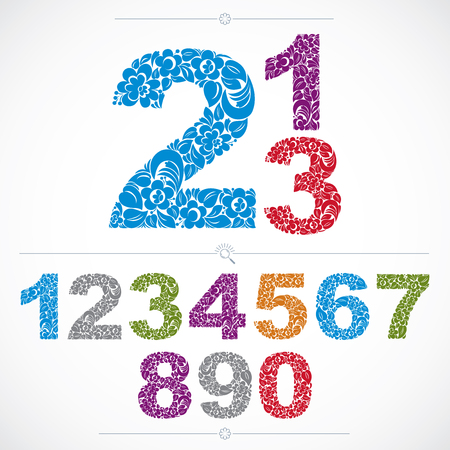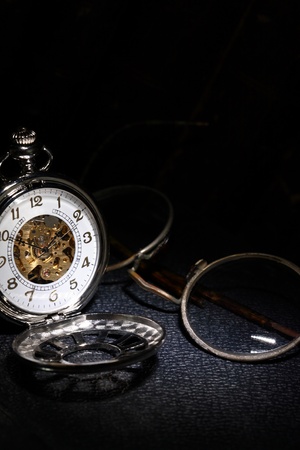1. Introduction to Digital Horoscopes in the UK
In recent years, there has been a noticeable surge in the popularity of digital horoscope platforms among British millennials. This demographic, often characterised by its tech-savvy nature and progressive outlook, is reshaping how astrology is perceived and consumed in the United Kingdom. Where once horoscopes were found primarily in the back pages of newspapers or glossy magazines, today’s young adults are turning to mobile apps, interactive websites, and social media accounts dedicated to astrology for their daily dose of cosmic guidance. This shift is not just technological but also cultural. There has been a marked transformation in attitudes towards astrology across contemporary British society. What was once dismissed as mere superstition or light entertainment is now embraced by many as a tool for self-reflection, personal growth, and even community building. For British millennials navigating an era defined by uncertainty and rapid change, digital horoscopes offer both comfort and connection—reflecting broader changes in how this generation seeks meaning and support in everyday life.
2. Societal Shifts and Millennial Mindsets
The landscape of British society has undergone significant transformation over the past two decades, directly shaping the outlook and lifestyle choices of the millennial generation. For British millennials—those born roughly between 1981 and 1996—the interplay between cultural shifts and digitalisation has resulted in a unique openness towards astrology and digital spiritual practices.
Traditional institutions, such as organised religion and rigid social structures, have gradually lost their dominant influence on public life in the UK. Instead, millennials have come of age during a period marked by economic instability, rapid technological progress, and evolving conversations about identity and belonging. This context has fostered a desire for alternative sources of meaning, guidance, and community—needs increasingly met by digital horoscope platforms.
Key Factors Influencing Millennial Attitudes:
| Factor | Description | Impact on Openness to Astrology |
|---|---|---|
| Decline of Traditional Religion | Lower levels of regular religious participation compared to previous generations. | Encourages exploration of alternative spiritual practices. |
| Digital Natives | Comfortable with technology, social media, and online communities. | Facilitates access to digital horoscope content and interaction. |
| Economic Uncertainty | Financial crises, unstable job markets, housing challenges. | Sparks interest in tools that offer personal insight or reassurance. |
| Cultural Diversity | Exposure to multiple belief systems within multicultural urban environments. | Normalises eclectic approaches to spirituality and self-exploration. |
| Mental Health Awareness | Greater emphasis on wellbeing, mindfulness, and self-care. | Makes astrology appealing as part of holistic wellness routines. |
This convergence of factors means that astrology is no longer confined to the back pages of tabloid newspapers or niche New Age shops; instead, it is woven into the fabric of everyday digital life. The millennial mindset—characterised by pragmatism, curiosity, and a willingness to experiment—has contributed to a cultural environment where exploring horoscopes via apps or websites feels both accessible and relevant. In this way, the rise of digital horoscope platforms reflects not just changing technology but also broader societal reconfigurations across the UK.

3. Leading Digital Horoscope Platforms
In recent years, the UK has witnessed a significant surge in digital horoscope platforms catering to millennials’ renewed interest in astrology. Among the most notable are both homegrown British apps and internationally renowned services that have adapted their offerings to suit UK audiences. For instance, The Pattern and Co-Star—two US-based apps—have seen widespread adoption across Britain, offering daily horoscopes and deep astrological insights with an interface that resonates with tech-savvy users. However, British-specific platforms such as Astro-Seek UK and the well-established Astrology.co.uk provide tailored content, including localised time zones for birth charts and references to British culture, making their readings feel more relevant to users from London to Liverpool.
What truly sets these platforms apart for UK-based millennials are features like customisable notification settings timed to GMT, compatibility readings styled after popular British celebrities, and even astrology-related event recommendations happening locally—be it a moon circle in Bristol or an astrological workshop in Manchester. Many platforms integrate with messaging apps commonly used in Britain, like WhatsApp, allowing users to share daily forecasts and memes with friends seamlessly. Additionally, privacy-conscious Britons appreciate the strong data protection standards adopted by European-based apps, aligning with GDPR requirements and fostering trust among young users.
Ultimately, whether through clean design aesthetics, British-English language preferences (think ‘favourite’ over ‘favorite’), or the inclusion of regional humour and slang within their push notifications, leading digital horoscope platforms continue to refine their offerings to better serve the unique tastes and expectations of British millennials navigating the modern astrology revival.
4. British Cultural Nuances in Digital Astrology
When considering the popularity of digital horoscope platforms among British millennials, it’s crucial to recognise how UK-specific language, humour, and cultural references profoundly shape their experience. Unlike the more generalised approaches often found in American astrology apps, British platforms and content creators infuse horoscopes with a distinctly local flavour. This goes beyond just spelling differences (favour vs. favor); it encompasses wit, understatement, and references that feel genuinely familiar to a UK audience.
Language and Communication Styles
British millennials typically expect a level of subtlety and dry humour in digital content, including horoscopes. Phrases like “Keep calm and carry on” or references to “having a proper brew” might be woven into daily star sign readings. Such language choices not only resonate emotionally but also create a sense of community and shared understanding. The use of British slang—think “cheeky,” “bloke,” or “dodgy”—adds an extra layer of relatability that Americanised versions can lack.
Humour as a Binding Force
Self-deprecating humour is another significant trait. Many UK-based horoscope platforms will poke fun at astrological stereotypes (“Geminis: try not to start three new projects before lunch”) or reference common British weather woes (“If your day feels gloomy, blame Mercury retrograde… or just the rain”). This approach creates a light-hearted, approachable space where astrology doesn’t take itself too seriously—a tone that appeals strongly to the millennial demographic.
Cultural References in Horoscope Content
British digital horoscope experiences are packed with nods to pop culture, politics, and everyday life. For example, horoscopes may reference everything from Love Island drama to the complexities of using public transport in London. Below is a table highlighting some typical UK-centric cultural references compared to more generic or US-centric alternatives:
Topic |
UK-Centric Reference |
US/Generic Reference |
|---|---|---|
Weather |
“Blame it on the drizzle” | “Blame it on the heatwave” |
Food & Drink |
“Time for a cuppa” | “Grab a coffee” |
Pop Culture |
“Like something out of EastEnders” | “Feels like a Hollywood movie” |
Humour Style |
Sarcasm and understatement | Direct optimism or enthusiasm |
Social Life |
“Popping down the pub” | “Hitting up the bar” |
The Value of Familiarity and Belonging
This alignment with British culture means digital horoscope platforms are more than just entertainment—they act as virtual social spaces where millennials feel seen and heard in their own context. By reflecting everyday realities and nuances unique to Britain, these platforms foster stronger engagement and loyalty among users who value both astrological insight and cultural belonging.
5. The Social Experience: Community and Sharing
Within the vibrant landscape of British millennial culture, digital horoscope platforms have become more than just a source of daily guidance—they have evolved into hubs for communal experience and social interaction. A key driver behind this phenomenon is the seamless integration of horoscope content with social media groups and online communities. Whether it’s through dedicated Facebook groups, WhatsApp chats, or Reddit threads, millennials across the UK are gathering to discuss their star signs, share daily readings, and compare astrological experiences.
Online Communities Shaping Modern Astrology
British millennials have embraced online astrology communities as spaces where they can explore their curiosity about horoscopes in a supportive environment. These groups offer not only a platform for sharing memes and relatable content but also enable members to seek advice on relationships, career choices, and personal growth based on astrological insights. The informal yet engaging tone common in these communities reflects the distinctly British penchant for wit and camaraderie.
The Importance of Sharing Daily Horoscopes
Sharing daily horoscopes has become a ritual among many British millennials. Forwarding today’s astrological forecast to friends or posting one’s star sign reading on Instagram Stories allows individuals to spark conversation and create inside jokes based on their zodiac traits. This act of sharing strengthens bonds within friendship circles and brings a playful dimension to everyday life, reinforcing astrology’s role as a modern form of social glue.
Cultural Nuances in British Astrological Circles
What sets British digital horoscope culture apart is its subtle blend of scepticism and enthusiasm. Many participants approach horoscopes with a healthy dose of irony, often poking fun at their own star sign stereotypes while still finding value in the shared experience. This characteristic approach fosters inclusivity; whether you’re a true believer or simply along for the banter, there’s a place for everyone in these digital communities.
In summary, for British millennials, digital horoscope platforms are far more than personal tools—they are catalysts for connection. Through social sharing and collective engagement, astrology becomes woven into the fabric of everyday conversation, reflecting both the desire for meaning and the enduring importance of community in contemporary UK life.
6. Critiques and Scepticism
Despite the growing popularity of digital horoscope platforms among British Millennials, it is important to recognise that this trend exists alongside a robust culture of critique and scepticism. The UK has a long-standing tradition of approaching astrology with a raised eyebrow, often employing sardonic wit and dry humour as a means of questioning its validity. This attitude has migrated seamlessly into digital spaces, where social media threads, online forums, and comment sections are frequently peppered with tongue-in-cheek remarks about Mercury in retrograde being blamed for everything from missed trains to minor mishaps.
Common Criticisms in the Digital Age
One prevalent criticism revolves around the perceived lack of scientific grounding in astrology. Many British Millennials, while occasionally indulging in horoscopes for fun or self-reflection, remain openly wary of taking astrological predictions at face value. Online, this manifests in witty memes or satirical posts that highlight the vagueness or generality of horoscope readings. It is not uncommon to encounter comments such as “If only my star sign could help me pay my rent,” underscoring a pragmatic scepticism that tempers any enthusiasm for digital astrology apps.
The Role of British Humour
The traditional British penchant for self-deprecating humour also shapes how astrology is discussed online. Rather than rejecting horoscopes outright, many Millennials engage with them through playful banter—sharing daily readings only to mock their accuracy or blame their star sign for a particularly ‘off’ day at work. This approach allows individuals to participate in astrological trends without appearing overly credulous, maintaining a balance between curiosity and critical distance.
Digital Platforms Responding to Sceptics
Interestingly, some digital horoscope platforms have adapted to this cultural context by incorporating features that acknowledge and even encourage light-hearted scepticism. Certain apps offer “tongue-in-cheek” readings or include disclaimers reminding users that astrology should be taken with a pinch of salt. By doing so, these platforms foster an environment where sceptical humour can coexist with genuine interest, catering specifically to the nuanced attitudes of British Millennials.
In summary, while there is no shortage of enthusiasm for digital horoscopes among Britain’s younger generations, this engagement is rarely uncritical. Through the lens of traditional British scepticism—often expressed via dry humour and pragmatic commentary—the rise of digital astrology platforms reflects not just changing tastes but also enduring cultural values.
7. Future Trends for Digital Horoscopes in the UK
Looking ahead, digital horoscopes are poised to become even more deeply embedded within the daily lives of British millennials.
Technological Advancements
The integration of artificial intelligence and machine learning is likely to make horoscope readings increasingly personalised. Algorithms can analyse user behaviour, preferences, and even mood patterns—delivering tailored insights that resonate on a uniquely individual level. With the growing popularity of wearable technology and smart devices, it is feasible that daily horoscopes could be delivered through voice assistants or even incorporated into augmented reality experiences. This seamless integration with digital ecosystems aligns with how British millennials already consume content—on-demand, interactive, and instantly accessible.
Social Dynamics and Community
The social aspect of digital horoscopes is expected to evolve as well. Online platforms are likely to foster more interactive communities where users can share interpretations, seek advice, and engage in discussions about astrologys relevance in modern British life. Features such as live-streamed readings, group compatibility analyses, and collaborative events might become commonplace. These communal spaces could help combat feelings of isolation by connecting like-minded individuals across the UK who find meaning in astrology.
Cultural Integration
Culturally, digital horoscopes may further embed themselves within the fabric of British millennial identity. As conversations around mental health and self-care continue to grow in importance, astrology apps may position themselves as tools for mindfulness and personal reflection. Partnerships with wellness brands or integration into lifestyle services could make horoscopes a routine part of daily self-care. Furthermore, as British society becomes increasingly diverse, platforms may offer multi-cultural astrological perspectives—blending traditional Western zodiac insights with global influences to appeal to a broader audience.
A Landscape of Ongoing Experimentation
The rise of digital horoscope platforms among British millennials suggests a future marked by ongoing experimentation. As technology advances and cultural attitudes shift, these platforms will likely adapt by offering new forms of engagement—whether through gamification, immersive content, or hyper-localised forecasts tailored to specific UK regions and communities.
Conclusion: A Modern Evolution
The evolution of digital horoscopes for British millennials promises a blend of cutting-edge technology, vibrant community interaction, and deep cultural relevance. By embracing innovation while maintaining authenticity, these platforms are set to remain an integral part of how young Britons explore identity, connection, and meaning in an ever-changing world.


